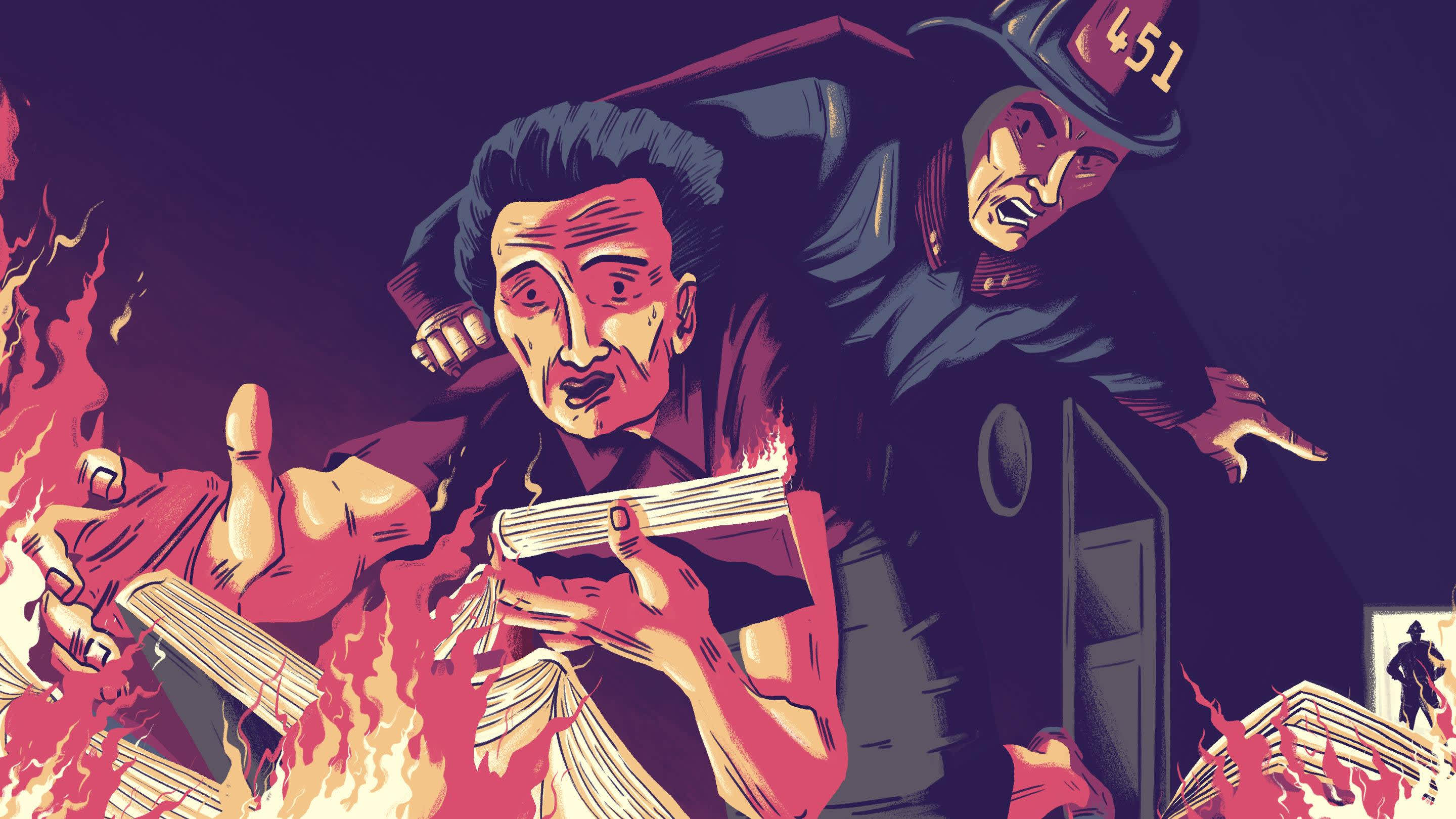I finished reading Fahrenheit 451 in over 3 hours, starting at 2a.m. In these busy days, it's hard to find the time and mind to read through such a classic. But formerly I caught the beat of 451 degrees F, I understood, that if I stopped half, it would be delicate to return to the bewildering series of studies that the characters in the book took turns pouring onto the runner.
451 degrees F is an American fantasy novel about an unborn society in the style of" dystopia" at the end of the twenty-first century when people have lived so full that they nearly do not need to live. suppose about commodity. Indeed the houses are covered with incombustible plastic, so the firefighters are no longer demanded, they're turned into firemen. Their job is to burn books. The main character of the work, Guy Montag, is a fireman. In history, how numerous times has humanity been shaken by the events of book burning? Burning books isn't simply burning some material of mortal society, burning books is serious damage to mortal knowledge, burning books means the threat of civilization being wiped out. But the world in 451 degrees F has long since passed that tumultuous climax, now society has nearly fully rejected the book and the firemen work with the responsibility of saving lives in agreement with their professional ethics. surname. also one day, on the way home, Guy Montag met Clarisse McClellan, the girl coming door with an internal illness, who loved to talk about her uncle who had magical studies and strange studies about the world Montag had set up. noway heard of. And effects really got into trouble when Guy Montag eventually decided to try out the books he was responsible for burning.
Mortal thinking had a decisive shift when the question" why" was born. Montag began to wonder about the reason for the burning of the books. Ray Bradruby gave a study-provoking answer to exclude books to exclude mortal unhappiness. Books arouse thinking, and study is the source of suffering. Happiness can only come from what's direct, direct with its oblivion of what's troubling our minds. The captain of the firemen, Beatty, always said
Do not face the trouble, burn it.
In fact, this view isn't new. maybe in each of us, there has been a time when choosing to forget to take a diversion to avoid a problem that torments us. We refuse to face it, refuse to suppose about it, for hundreds of tone-satisfying reasons. In Ray Bradruby's fictional society, there is simply a redundant government to direct and a group of firemen to do these effects for everyone, so thoughtful that indeed the reflections of forgetting or facing people do not need to worry. Just as a firefighter is devoted to saving your cat in a tree, a firefighter will be devoted to taking care of the implicit unhappiness in your life before you indeed realize it. In that materialistic society, people have been hurt too important and the way they save themselves is to find ways to destroy the troubles. As Ray Bradruby refocused out, occasionally that means destroying yourself at the same time.
From the morning to the end of 451 degrees F, the main story revolves around the act of burning books, delivering books, and allowing about books. But this is by no means just a story about books. After reading Fahrenheit 451, I'm more and more convinced that, anyhow of the specific subject matter, classics can only come classics when the core of their story is a mortal issue. Books, dears, firemen, moonlight on the night Guy Montag met Clarisse McClellan and Clarisse McClellan herself and numerous other details in the work constitute an endless chain of interlocking conceits. The layers of meaning change constantly in the thinking process, which makes the story" information load" in certain passages. still, I suppose that decoding that tropical system is actually a veritably intriguing challenge for any anthology who wants to dig deeper into a work that's considered a classic of world literature.
Another thing that made me love this novel is Ray Bradbury's extremely delicate jotting style. generally, his liar also changes according to the trip of awakening thinking of the character Guy Montag. In the first part of the work, this character nearly only narrates the events passing around, the style is occasionally kindly confusing and fugitive. So it isn't surprising that he's an unresistant philanthropist in the studies of the character Clarisse. compendiums fluently fete Montag's incapability to express himself. But since he started allowing about life, about the question" why", everything has gradationally changed, the style is more flawless and clear. At the last nanosecond, it was Montag who converted into Faber's tutor- whom he'd turned to learn from not long ahead.



